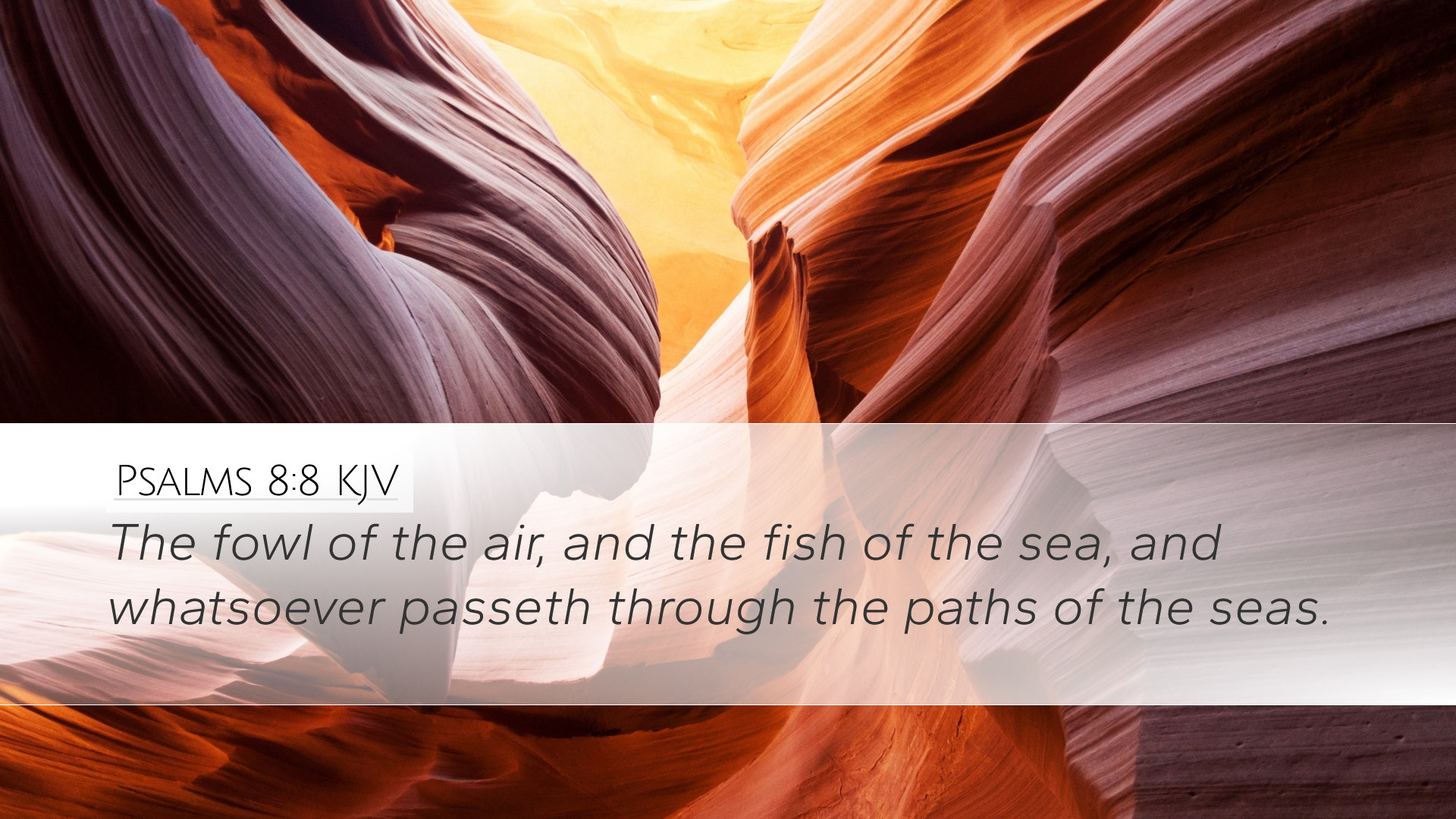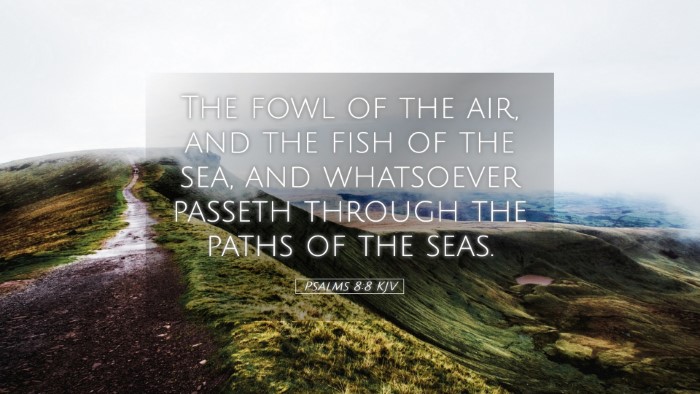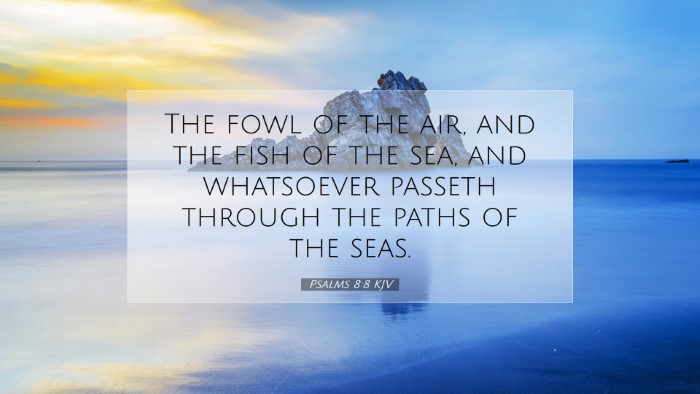Psalms 8:8 Commentary
Bible Verse: "The fowl of the air, and the fish of the sea, and whatsoever passeth through the paths of the seas."
Introduction
Psalms 8 is a majestic psalm of David that contemplates the glory of God as displayed in creation and the place of humanity within that creation. Verse 8, specifically, directs attention to the dominion humanity holds over various creatures, emphasizing the breadth of God's creation and the responsibility bestowed upon mankind.
Insights from Matthew Henry's Commentary
Matthew Henry highlights the significance of this verse in illustrating the vastness of God's creation. The phrase “the fowl of the air” indicates creatures that inhabit the heavens, while “the fish of the sea” refers to aquatic life. Henry underscores that these creatures roam freely in their environments, yet God has placed humanity in a position to have dominion over them.
Henry further elaborates that this dominion is not merely a ruling authority but involves stewardship and care. Humanity is called to manage creation wisely and responsibly, reflecting the character of God as a creator. This perspective is vital in understanding humanity’s role in relation to the natural world.
Insights from Albert Barnes' Commentary
Albert Barnes offers a thoughtful reflection on the imagery contained in Psalms 8:8. He suggests that this verse paints a picturesque scene of life both above and below the waters. The inclusion of “whatsoever passeth through the paths of the seas” may refer to the hidden creatures of the ocean, emphasizing the depth and mystery of God’s creation.
Barnes notes that this verse could also denote the totality of life that exists under God’s sovereignty. It signifies that there is no part of creation that escapes God’s authority, and thus, humanity is entrusted with a profound responsibility to acknowledge this reality. The verse, therefore, serves as a reminder of the broader divine order which humanity must recognize and respect.
Insights from Adam Clarke's Commentary
Adam Clarke’s commentary brings an analytical perspective to the text. He discusses the original Hebrew terms used in the verse, which can provide deeper implications of the words "fowl," "fish," and "paths." Clarke emphasizes that the understanding of these terms allows readers to appreciate the diversity and complexity of creation. The “paths of the seas” might symbolize the migratory routes of fish or the currents of the ocean, hinting at God’s intricate design of nature.
Clarke reminds his readers that there is a theological underpinning to this dominion—it reflects God’s sovereign rule over all creation, and humanity’s role is one of governance that must align with God’s intent. He stresses that such dominion should be exercised with wisdom, humility, and in stewardship, aiming to glorify God through the responsible use of creation.
Theological Reflections on Dominance and Stewardship
This psalm encapsulates two critical themes for theological reflection: the notion of human dignity and responsibility in creation. It reminds contemporary scholars and theologians that while humanity has been granted dominion, this power must not lead to exploitation of the environment. Instead, it should promote a sense of sacred stewardship that honors God's creation.
Much of the discourse around environmental stewardship aligns with the teachings derived from this psalm. It acknowledges that humanity’s role should be that of a caretaker of creation, tasked with nurturing and cultivating the earth rather than despoiling it. In this light, Psalms 8:8 is highly relevant in discussions about ecology, conservation, and the moral obligations humans have toward their environment.
Concluding Thoughts
Psalms 8:8 serves as both a proclamation of the greatness of God and a declaration of humanity's responsibility. In understanding the significance of this verse through the lens of biblical commentators, we find a rich tapestry woven with themes of creation, dominion, and ethical stewardship. This profound understanding calls believers to regard the natural world with reverence and to act in ways that honor the creator.
As pastors, students, theologians, and Bible scholars delve into these insights, may they be encouraged to lead discussions that reinforce the interconnectedness of creation and the profound responsibility bestowed upon humanity.


